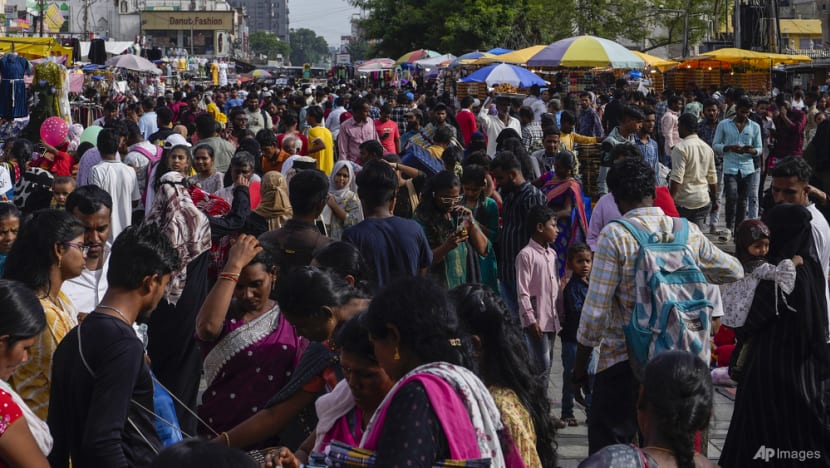India faces rising social inequality across religious lines
Only 15 per cent of Muslim workers in the world’s most populous country were regularly employed in the financial year ending in March 2023.


This audio is generated by an AI tool.
MUMBAI: Rickshaw driver Ashfaq Shaikh earns less than US$100 a month plying the streets of Mumbai – hardly enough to provide for his family.
Mr Shaikh believes that his financial struggles are partly due to the discrimination he believes he faces because of his religion.
“When I go to look for jobs, the people hiring look at my religion. They hear my (Muslim) name and don't want to hire me,” he told CNA.
His economic difficulties reflect that of many others in the Muslim community, which make up about 14 per cent – or 200 million – of India's population.
According to official data, only 15 per cent of Muslim workers were regularly employed in the financial year ending in March last year. This contrasted with 21 per cent among Hindus.
SOCIO-ECONOMIC WELLBEING
Muslims also lag behind in other key indicators of socio-economic wellbeing.
Data further showed that only 8 per cent of working Muslims have at least a university degree, compared with 15 per cent of working Hindus.
Muslims also own fewer assets and buy fewer consumer goods compared to the national average. Their consumption stands at about 88 per cent of the national average.
A 2022 survey by global analytics firm Gallup found that 51 per cent of Muslims felt their living standards were getting worse, while the proportion among Hindus was 39 per cent.
“I think what has happened in the last 10 years is that the rift has widened between the Muslims and other communities,” said political strategist Sanjay Ranade.
“There is a line that has been drawn – a very deep line. And it will be very difficult to remove that line.”
WHAT IS BJP’S ROLE IN THIS?
Some analysts believe Prime Minister Narendra Modi’s Hindu nationalist Bharatiya Janata Party (BJP) being in power for a decade has fuelled religious divisions and further entrenched existing inequalities.
As Mr Modi begins his third term in office, his Cabinet will see no Muslim ministers for the first time in history. This comes as Muslim representation in Parliament continues to wane.
However, the BJP has blamed previous governments for any economic disparity faced by the Muslim population.
In the same vein, Mr Ranade – who is executive vice president at India's largest independent agency network, Concept Communication – said that one government cannot be blamed for the disparity given that such inequality has been an issue for decades.
India was under Muslim rule until the 19th century. When the Indian subcontinent gained independence from the British in 1947, it was split into the Hindu-majority India and Muslim-majority Pakistan.
Since then, Muslims in India have struggled to be treated equally.
HELP FOR MUSLIMS
Nevertheless, there have been some efforts to help them get better access to jobs.
In 2019, the government implemented a 10 per cent quota in public sector jobs and in education for the so-called economically weaker sections of society, including Muslims.
“We have empowered the people who are economically downtrodden, and if the Muslims (are) a part of it, they have been given the same facilities as any Hindu or anyone else,” said BJP spokesperson Shaina NC.
Such efforts have however not eased Mr Shaikh’s worries for his children's future, even as he holds out hope that his situation will improve.
The Muslim population is not alone when it comes to facing financial inequality, and analysts said if such inequality is not addressed, simmering unhappiness can lead to social unrest.
A thin silver lining is that the BJP's coalition allies do not necessarily support the party's Hindu nationalist ideas, which may tone down the divisive rhetoric in Indian politics going forward.















